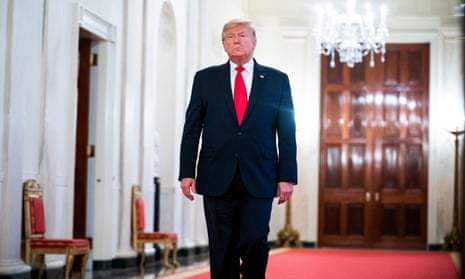Opening arguments in Donald Trump’s impeachment trial have concluded. The trial could be over by the end of the week – unless a push to call witnesses succeeds, in which case it could continue into February.
Here’s a look at what’s still ahead:
Wednesday and Thursday
Questions from the senators. Senators may submit written questions to the supreme court’s chief justice, John Roberts, who is presiding at the trial. He will read the questions for both legal teams to answer. This could be an important opportunity for Democrats to force Trump’s defense team to grapple with potential testimony by the former national security adviser John Bolton or other potential witnesses.
Friday
A big day. If the anticipated timeline has not been derailed, senators would use Friday afternoon to debate, for up to four hours, whether to hold votes on calling for witnesses or documents. If they decide not to call witnesses, the Senate could vote on Friday to acquit Trump on both articles of impeachment – and the impeachment process would conclude.
Or the Senate might decide to call a limited number of witnesses, setting up a potential showdown with the White House, which has warned that it would go to court to block testimony by current or former Trump aides.
If the Senate votes against calling witnesses on Friday, expect a speedy dismissal. But multiple Republican senators have indicated they would like to hear from Bolton. A simple majority, comprising the Democratic caucus plus four Republican senators, would be enough to call witnesses.
If the Senate votes in favor of calling witnesses, all timeline bets are off. The trial could get tied up in court; Roberts may intervene; negotiations over the terms of testimony, whether in public or private deposition, would be entered – in short, the impeachment trial would be more likely to extend in length to match Bill Clinton’s 1999 trial, which lasted just more than one month.
